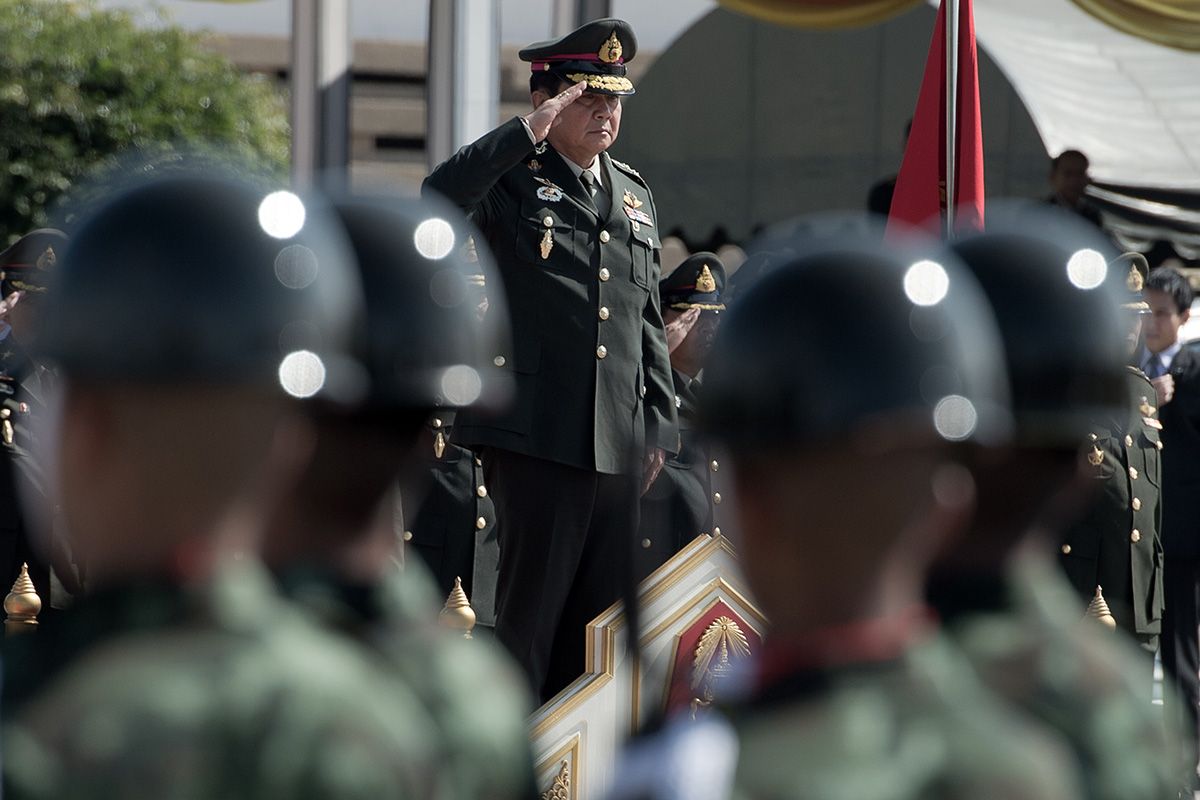Thailand said it remains on course for elections next year and that curbs on political parties will soon be eased, as pressure mounts on the military government to roll back restrictions on campaigning.
Prime Minister Prayuth Chan-Ocha said last month a vote will be held in November 2018, though analysts are concerned the military will seek to retain power. Suvit Maesincee, the minister attached to Prayuth’s office, said the groundwork is being undertaken to stick to the timeline.
"Democracy or democratisation is the next step for Thailand," Suvit, 56, said in an interview in Bangkok on Nov. 10 . "They’re still working on supporting election laws, but I think everything is on track for November."
Prayuth launched a coup in May 2014 after prolonged street demonstrations pummeled the economy, clamping down on political activity under a pledge to restore stability. The party he unseated from government, Pheu Thai, in a statement last week said the military administration is trying to defer the election by stalling on allowing the return of campaigning.
Suvit, architect of the so-called Thailand 4.0 policy that seeks to upgrade the economy, said political activity will be allowed "very soon," while adding that parties need to break away from Thailand’s cycle of elections and coups.
"If we come up with the old ways of politics, I don’t think that this country can go further, can be a part of the next level of global competition," said Suvit. Much has changed in Thailand in the past three years and most people don’t want to return to "hyper-conflict," he added.Thailand’s economic growth is still recovering from the period spanning the unrest and coup more than three years ago, narrowing the gap with Southeast Asian neighbors.
Elections are more likely to happen in 2019 as public dissent with the military government’s rule is still at a manageable level, according to the Economist Intelligence Unit. The need to complete laws related to the vote, as well as security concerns, could be used to justify a delay, the EIU said in an analysis.
In the years before the most recent army takeover, fissures in Thai society triggered sometimes violent clashes between urban royalists and rural backers of exiled former leader Thaksin Shinawatra.
Thaksin’s sister, former Prime Minister and Pheu Thai leader Yingluck Shinawatra, fled Thailand in August before being sentenced in absentia to five years in jail in a negligence case she said was politically motivated.
The current stretch of military rule in Thailand is one of the longest since the 1970s, in a country with a history of army intervention since the end of absolute monarchy in 1932. – Bloomberg
Recommended stories:
